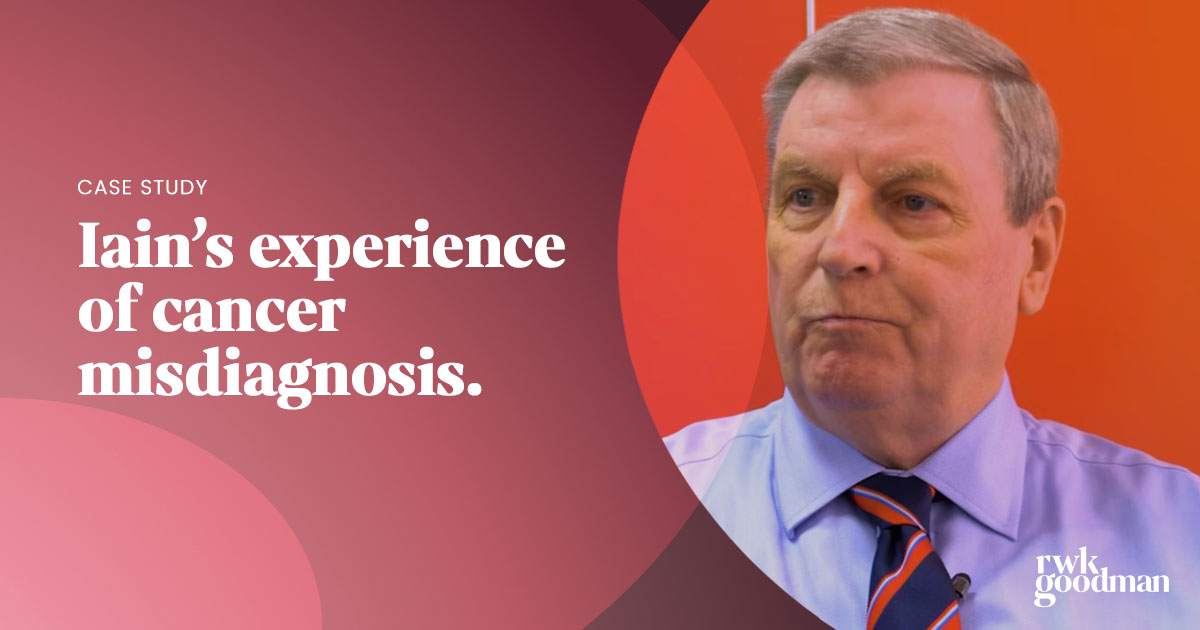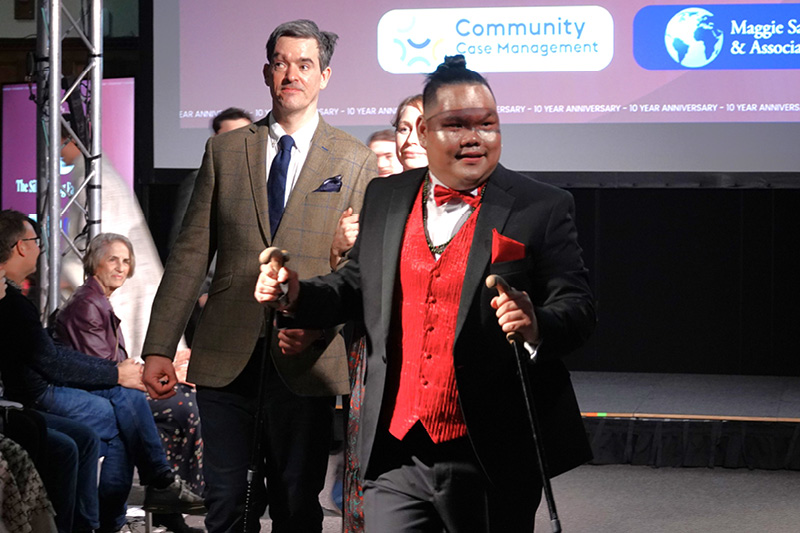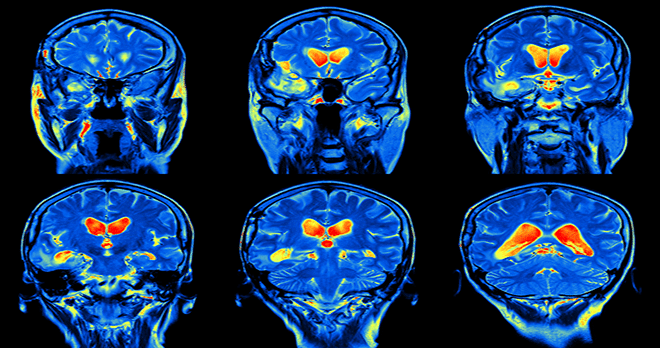In conversation with Martin Sinclair – Former England CP International and Co-Founder of the Disability Football Collective
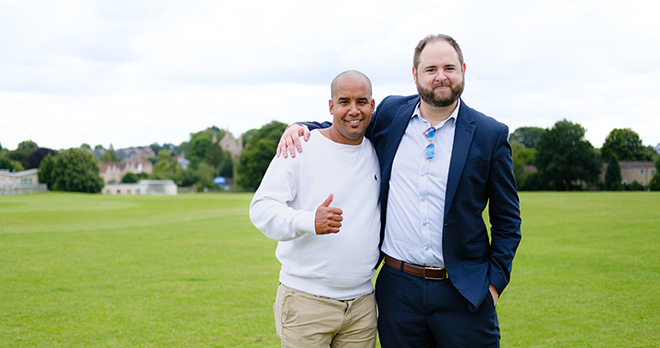
RWK Goodman is proud to sponsor England’s largest Cerebral Palsy International Football Festival in Bristol and delighted to speak to Martin Sinclair who has both cerebral palsy and over 50 England caps!
At RWK Goodman we are extremely excited to be the headline sponsor for the 2024 Cerebral Palsy International Football Festival which will be hosted by Bristol City Cerebral Palsy Football Club (BCCPFC) from 2 - 4 August.
BCCPFC will be hosting up to 300 players from Ireland, Norway, Denmark and England, providing young people with cerebral palsy the opportunity to play football with international peers who experience similar challenges.
To find out more about BCCPFC, and the tournament, please visit their website.
RWK Goodman’s Ben Lees and Constance Moon recently had the privilege of speaking to Martin Sinclair, who played for the England Cerebral Palsy team for 10 years, about disability representation in football; his own organisation, the Disability Football Collective (‘DFC’); and the upcoming International Cerebral Palsy Football Festival in Bristol.
Martin, can you tell us a little bit about yourself?
I am a retired seven-a-side side football player with cerebral palsy. I competed in the London 2012 Paralympics, played for the England cerebral palsy team for 10 years, and have over 50 England caps. I have played around the world in World Cups and European Cups. A particular career highlight for me was playing in front of 80,000 people in London. It was even more special to me because my brother, Scott Sinclair, was also representing Great Britain at the same games. We were the first brothers in history to represent Great Britain at the Olympics and Paralympics for the same sport!
When I retired, it was not like retirement for a normal professional footballer. I had a job already as a SaintsAbility development officer for the Saints Foundation. I saw elite disabled players going onto the Paralympic pathway, but we did not have a grass roots pathway in Hampshire. The Southampton hub was set up, aimed at seven to 11 year olds with disabilities, and focussed on personal development. We then developed the adult programme with national and international tournaments, helping players develop within the game, and onto the England pathway if appropriate.
I wanted to work on people’s personal development and have always seen role models as an essential part of this. I’ve always believed that if you can see it, you can be it. If you see people with impairments like yourself excelling in the sport, it inspires you to think; I can do it too.
Over time it became increasingly clear to me that, whilst we were making great strides in helping players into the game, there were very few disability role models in support, leadership or decision-making positions. Not all people with disabilities who love the game want to be Paralympians or even players. Where are the opportunities if you want to be in management or talent spotting? What if you want to be a groundsman, referee, or presenter? What if you want to be involved in video analysis? You’ve got to think outside the box. You have to change people’s perceptions. When I left Saints and COVID hit, James (my DFC co-founder) and I got in contact and decided to fill that gap.
Can you tell us about the DFC and what inspired you to set it up. Who is it for?
We set up the DFC to try and improve disability representation across football and inspire the next generation. We wanted to provide opportunities and pathways for people to go into different fields in football. This can be anything from being a cameraman, to presenting and working in media.
The DFC will be a unique forum. No one is really doing the same thing in this space at the moment. We’re working on documenting the lived experiences of people with disabilities, and collating data to improve disability representation across the game. We want to manage and organise a network of people with disabilities, stakeholders and allies, providing a support network and building connections.
Great things are happening in football at the moment. We see this in women’s football and in accessibility for fans, but there is a missing piece; people with disabilities wanting to work in football. Women in football are lifting the nation and have had a great impact, inspiring the next generation of female footballers. As I say, if you can see it, you can be it. I see women’s football as being 10 to 15 years ahead of football for people with disabilities. We need to be inspired by, and to emulate, this success.
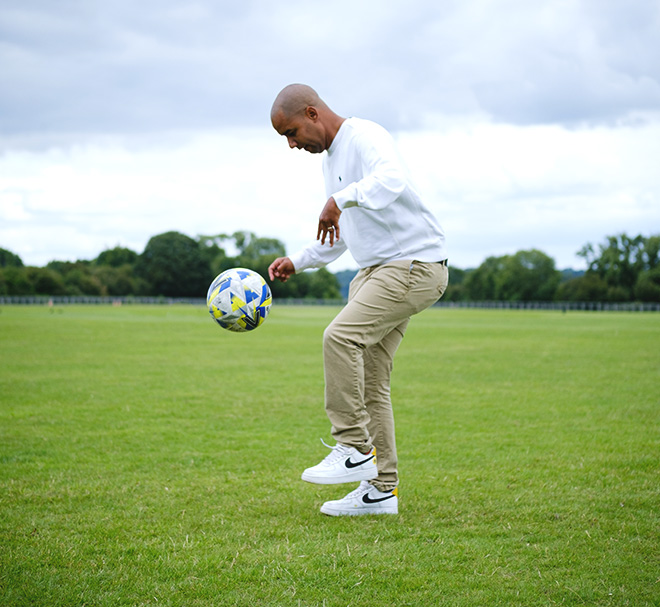
Festivals like this give people a platform to succeed and showcase their ability rather than their disability. The kind of set up that Bristol City Cerebral Palsy Football Club has, with its amazing coaching programme and the way they work together with sponsors and community stakeholders, is one of a kind to be honest.
Bristol City Cerebral Palsy Football Club has a number of dedicated coaches including Bob Young who has recently been awarded the England Football Grassroots Football Award for Coach of the Year Disability Pathway. I am impressed with the direction Bob Young has taken cerebral palsy football. It has gone from strength to strength. Opportunities have been created to play in different countries, with younger age groups playing fixtures once to twice a month, as well as adults. It is a great setup for them and a platform just to play football. Credit to Bob and the rest of his team for giving people the chance. I would love to see this replicated elsewhere in the country. It is also a testament to the volunteers who give up their time every Saturday. If it wasn’t for them, these people wouldn’t be playing football. It is hard for players with disabilities to get into the mainstream setup, but football is for all. We want to give people a chance to fall in love with the game.
Recently, one of the parents at Bristol City Cerebral Palsy Football Club got in contact with me about her son who has cerebral palsy and who was struggling to find where he fit in as he grew up, knowing he was different. I did a video message for him and got a few players to give him a shout out. Then I went down for a session, met him, and surprised him with a signed shirt. I like to think this gave him a confidence boost. He had a big smile on his face. That is what it’s all about for me.
Disability representation in football needs people to step up and lead from the front exactly like Bristol City Cerebral Palsy Football Club are. I’ve always found that nobody wants to be the first, but everyone wants to be the second, so I am confident that Bristol City’s example will prompt other clubs and organisations to follow suit. We all want to look up to someone at the end of the day. People with disabilities are no different. We all need hope and to have role models. When people see the talent on show, and the opportunities that football can offer, interest will start to snowball.
This Bristol City Cerebral Palsy Football Festival is about showing strength, ability and showcasing talent. The focus is not on disability. The focus is on playing football. I think this will be the foundation and building block for something bigger.
Will you be at the tournament? You will no doubt be an inspiration for many of these players.
Of course I will be at the tournament! If I can help in any way possible, I’ll do it. I always try and give back what disability has done for me. Without my disability I wouldn’t have been a Paralympian or an England player. Disability has given me a platform to succeed, and I want to show people that they can achieve something with their disability if they surround themselves with positive people. If I can do it, anyone can do it. I’ll be there for sure.
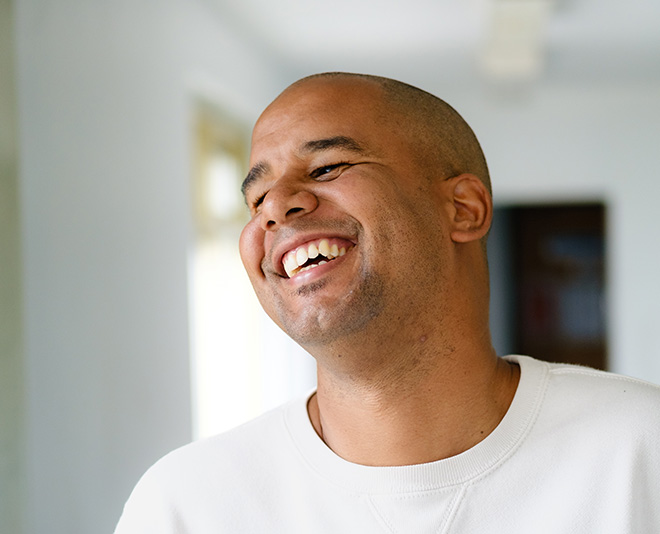
You and your brother, Scott Sinclair, were the first brothers to represent Great Britain at both the Olympics and Paralympics at the same time in London. It will probably be another first with Scott at Bristol Rovers and you supporting Bristol City Cerebral Palsy FC. Is there any club rivalry between you and Scott?
We very much want the best for each other. Scott is an incredibly supportive brother, as is Jake, and they want the best for people. We’re both pushing in different directions and have total mutual respect for each other’s paths. Of course, we have banter across the family that I have England caps and he doesn’t (sorry Scott), but ultimately we are just supportive brothers trying to be the best versions of ourselves. Scott is doing his own thing with Bristol Rovers.
How can players, families and other stakeholders keep up to date with, and sign up for, the Disability Football Collective?
We’re looking to soft launch the DFC website by the end of February 2024, at which point there will be a mailing list to sign up for. We will also have a community hub for people over 18 to get involved, as well as masterclasses. We will be on all social media platforms including Twitter, Instagram and LinkedIn. It will be a community for people with disabilities inspiring the next generation. Watch this space.
Contact our enquiries team to find out more about how our claims specialists can help people living in Bristol.
Call today
Hear more untold stories of sport after injury
We're here to share the stories of how sport has helped those living with disability find purpose and community.
Watch the full film here, featuring Martin, or click to view more interviews with inspirational sportspeople and more.
